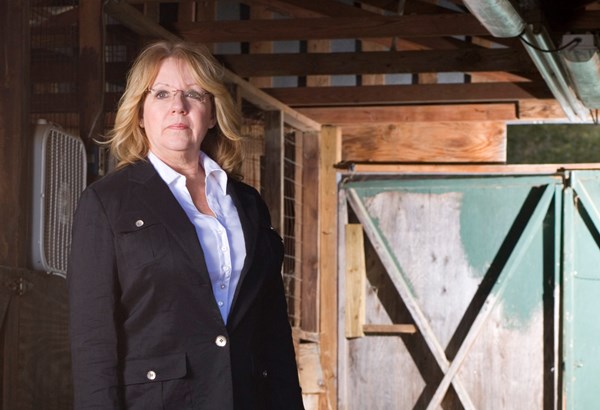 Credit: Thinkstock
Credit: ThinkstockThe U.S. House of Representatives is considering a resolution to impeach IRS Commissioner John Koskinen for violation of the public trust, failing to comply with congressionally issued subpoenas, and misleading the public over IRS practices of targeting conservative groups in audits. The last time Congress tried to remove a public official via impeachment was in 1876, when Secretary of War William Belknap was impeached on allegations he had helped himself to war funds. He resigned under pressure from President Grant.
IRS agents are often viewed with disdain by people subjected to audits, especially in the horse industry because agents frequently do not understand the intricacies of breeding, racing or showing.
When conducting audits of horse ventures, revenue agents usually rely on an IRS tax audit guide pertaining to this field. The guide is loaded with “gotcha” questions and prejudicial commentary. For example, the guide states:“Many of the taxpayers who potentially fall under the provisions of IRC section 183 with respect to horse and cattle activities have been involved in such activities during their youth. These taxpayers have grown up on farms or had close relatives who operated farms.Other taxpayers had unfulfilled childhood aspirations to be involved with such activities, but circumstances prevented participation.As adults, these taxpayers have achieved the financial wherewithal which permits participation.”
If you are audited in connection with your horse activity your auditor will be looking for the following red flag situations:
1. Sales of animals through atypical sources.
2. Bartering that may account for some sales; swapping of equipment or services for breeding stock.
3. Use of multiple bank accounts with reliance on the bank records for reporting purposes. The IRS thinks this lends itself to misreporting due to exclusion of some records. Revenue agents also watch for transfers to or from savings, money market, and investment accounts.
4. Lack of a business plan.
5. Personal expenses deducted as farm expenses. This is the most common form of misreporting among farmers and ranchers.
6. Inability to document how much time was devoted to the activity and whether the taxpayer was an active participant.
7. Incomplete or disorganized records.
Revenue agents need to understand that the horse industry is dynamic, and that various elements in the economy may dramatically tilt a taxpayer’s activity toward profit or loss. Changes in supply and demand for the particular animals can run the prices up or down. An oversupply of animals can push prices down. The weather impacts on profits as well, with drought, flood, heat spells and blizzards that can result in feed cost increases, reduced availability of grazing pasture, or there can be unexpected casualties or illnesses. Casualties and diseases can affect long range efforts to rebuild markets.
The IRS guide also asks revenue agents to watch out for taxpayers who conduct more than one activity, and to take into consideration the “material participation test.” The manual states that if a taxpayer is engaged in a full time occupation outside of the horse activity, that raises a question of how the taxpayer has sufficient time in which to “materially” participate in the activity. If the IRS finds that you are not materially participating, it could deny you the right to deduct losses against outside income.
If you are audited, it is helpful if you can show that you are either making a profit in the activity or that you are in the middle of a profitable year, or at least that your losses are declining.
Sometimes it can be important to have an expert witness prepare a report explaining how external circumstances contributed to losses, or to discuss the quality of pedigrees and businesslike methods demonstrated by the taxpayer.
It is usually prudent to have an experienced taxpayer representative handle the audit on your behalf. The main consideration in any audit concerning horses or other farming activity is whether the taxpayer has an honest intention of engaging in the activity with a view towards making a profit, rather than as a hobby. This is shown by objective as well as subjective evidence. Many of my clients have been successful in withstanding IRS scrutiny because they have made it a point to get professional legal guidance early on.
John Alan Cohan is an attorney representing people in federal and state tax disputes, IRS appeals, and Tax Court litigation, and is a long-standing author of a legal advice column published in numerous industry magazines. In addition, he advises organizations on compliance with newly enacted laws and regulations. John is also author of the book, Turn Your Hobby Into A Business — The Right Way. He can be reached at: (310) 278-0203, or email at johnalancohan@aol.com. His website is JohnAlanCohan.com.


